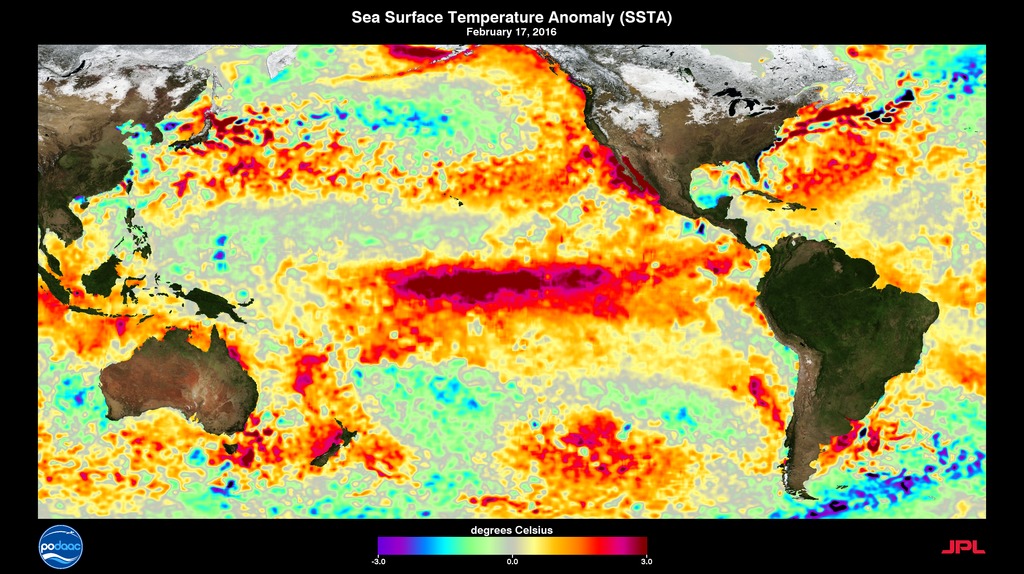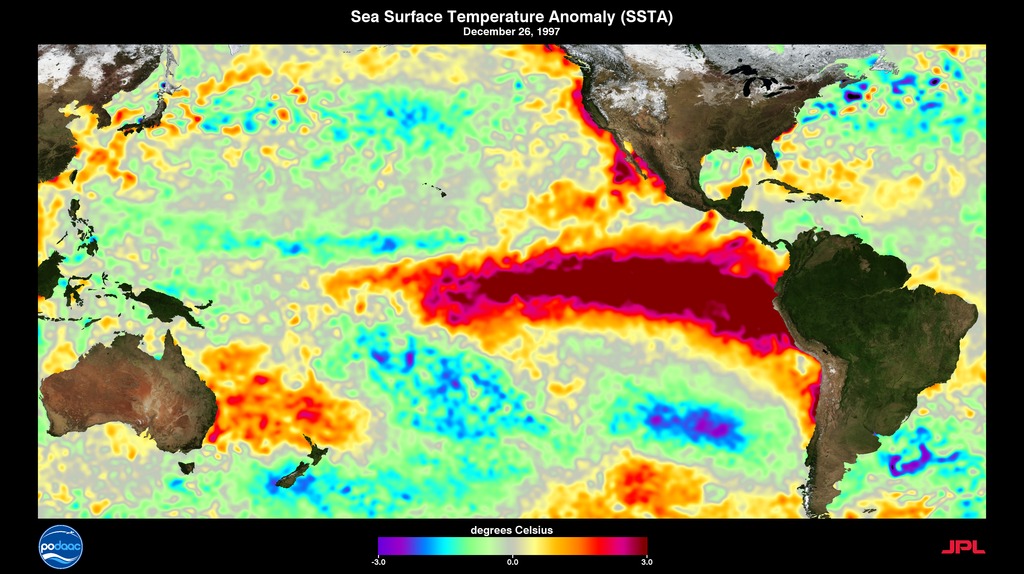ENSO Sea Surface Temperature Anomalies: 2009-2010
Animation of SSTA shows the evolution of the 2009-2010 ENSO.
The El Niño-Southern Oscillation (ENSO) is a quasi-periodic fluctuation of ocean temperatures in the equatorial Pacific. The temperatures generally fluctuate between two states: warmer than normal central and eastern equatorial Pacific (El Niño) and cooler than normal central and eastern equatorial Pacific (La Niña).
This animation illustrates the evolution of sea surface temperature (SST) anomalies (relative to the respective normal state) in the Pacific Ocean associated with the 2009-2010 El Niño, the warm phase ENSO. SST anomalies reflect the heat content in the mixed layer (upper 50 meters). Initial warming appeared in the eastern equatorial Pacific around May 2009 and grew into a moderate El Niño event by the end of the year.
For More Information
Credits
Please give credit for this item to:
NASA's Jet Propulsion Laboratory
-
Animator
- Charles Thompson (NASA/JPL CalTech)
-
Scientist
- Michelle M. Gierach (NASA/JPL CalTech)
-
Project support
Release date
This page was originally published on Wednesday, November 19, 2014.
This page was last updated on Sunday, February 2, 2025 at 11:35 PM EST.
Datasets used
-
GHRSST Level 4 AVHRR_OI Global Blended Sea Surface Temperature Analysis [InSitu and NOAA 16, 17, 18, 11, 7, 9, 14: InSitu and AVHRR-3 and AVHRR-2]
ID: 843
Note: While we identify the data sets used on this page, we do not store any further details, nor the data sets themselves on our site.

